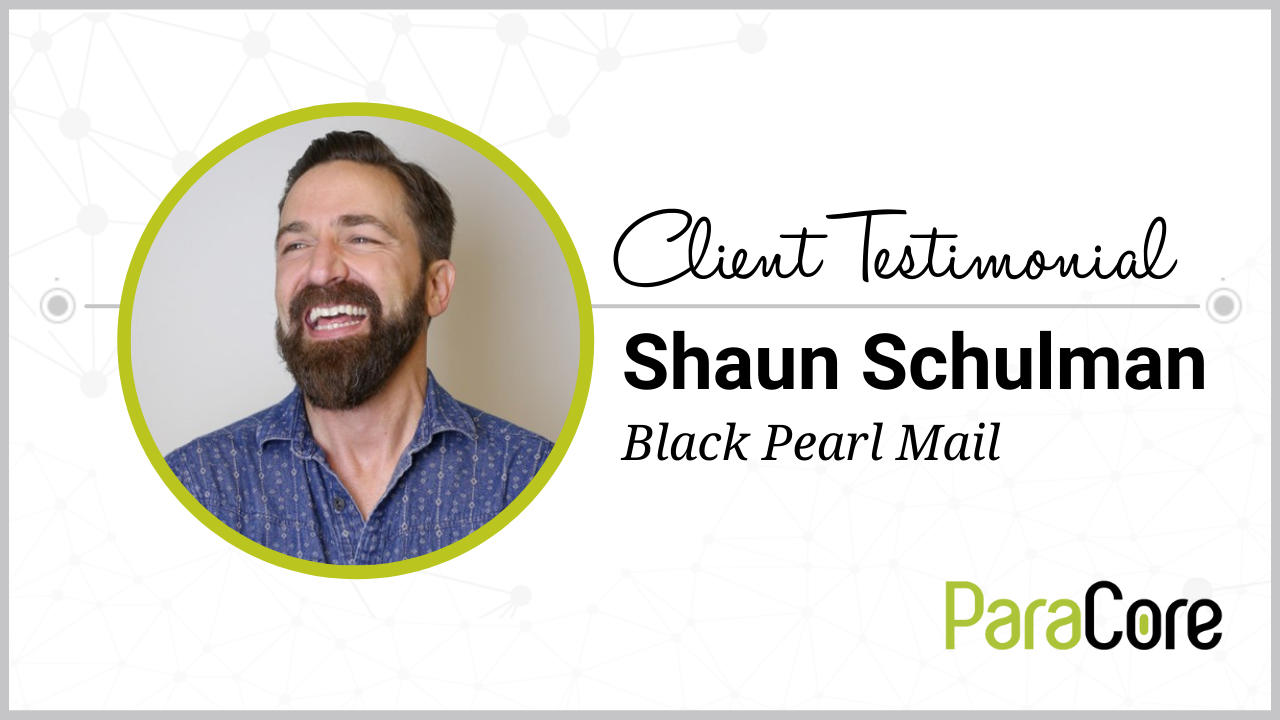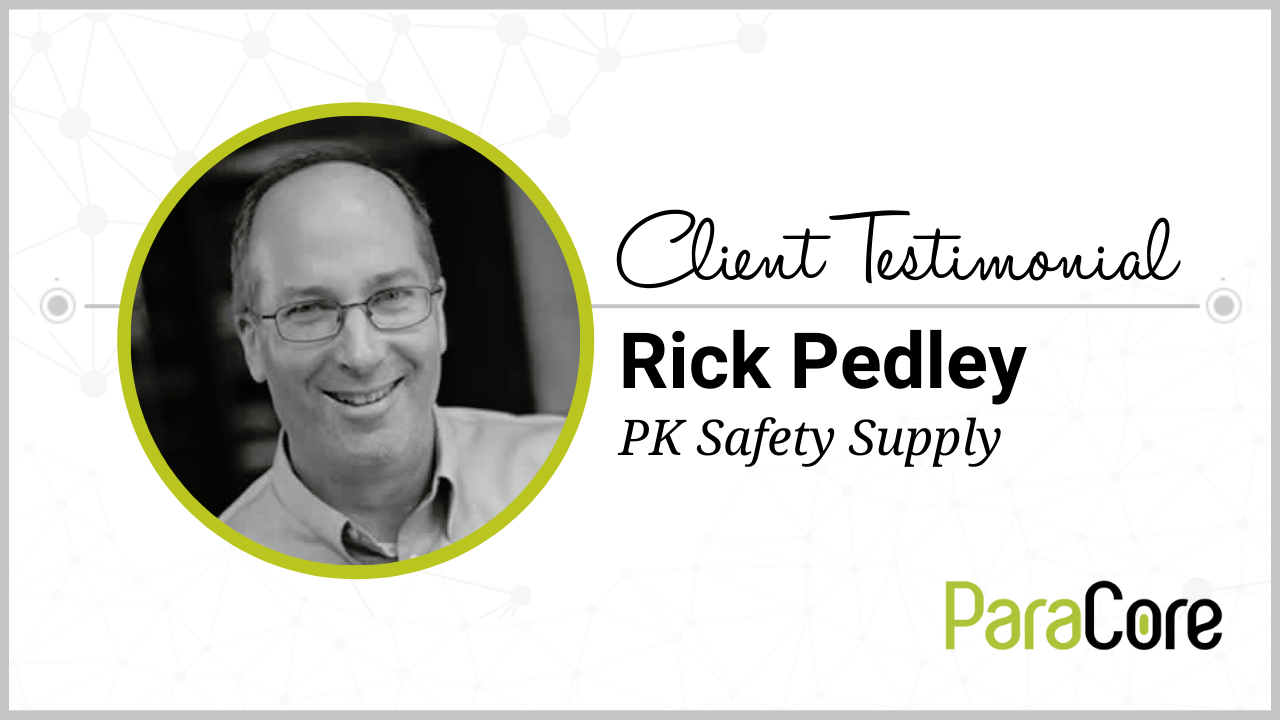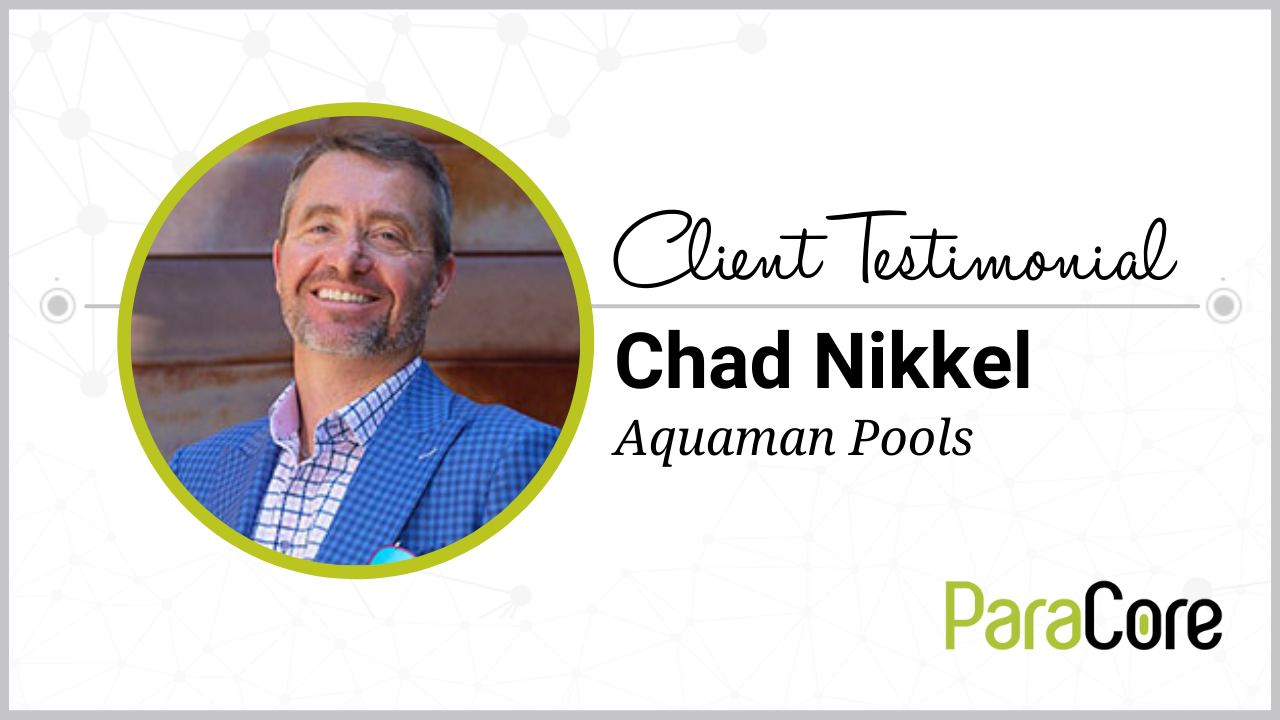Two families—let’s call them the Joneses and the Smiths—are planning vacations to Hawaii.
The Jones family prefers to plan the trip on their own. They do their own research, make reservations, and manage the whole trip without help.
The Smiths are busy people and don’t know a ton about Hawaii, so they decide to hire a tour guide. The guide interviews the Smiths about the type of hotel they’d like to stay in, the attractions they’d like to visit, and how much they’d like to spend.
Armed with this information, along with a keen understanding of the area and long-established relationships with local vendors, the guide puts together a plan for them. The package allows the Smiths to hit everything on their wish list and have the trip of a lifetime, while saving money, time, and frustration.
The relationship between a PPC consultant (like ParaCore) and a client is similar to that of the Smiths and their tour guide. It’s a relationship built on trust, a shared set of goals, and open communication.
Both tour guides and PPC managers also know the difference between a “good” client and a “bad” client. You’ve probably been on a tour or two with an impatient or rude guest, who frustrates the guide and ends up diminishing the experience. In the same vein, a poor PPC client can end up preventing the agency from reaching their goals and cause the relationship to go downhill.
Whether you’re on a tour or working with a PPC company, being aware of the process has its rewards. Good clients see better results, receive more attention, are more likely to enjoy their experience. Sound like something you want?
Here’s how to do it.
1. Be upfront and specific about your goals
 Few tourists visit specific destinations or attractions on a whim. Typically, the choice is based on a desired end goal: learning about a historical site, relaxing, spending time with family, or having a once-in-a-lifetime experience.
Few tourists visit specific destinations or attractions on a whim. Typically, the choice is based on a desired end goal: learning about a historical site, relaxing, spending time with family, or having a once-in-a-lifetime experience.
Similarly, few businesses engage with a PPC partner “just because.”
A PPC consultant’s job is to guide your digital marketing efforts based on your goals. Do you want to:
- Drive traffic to your website?
- Generate leads?
- Raise brand awareness?
- Increase sales?
- Something else?
Knowing what you hope to accomplish is key so we can design a PPC strategy that aligns with those objectives. Having any goals is a step in the right direction, but the more specific, measurable, and achievable they are, the more likely you’ll be to succeed.
Also keep in mind that your goals should be realistic and part of a larger marketing plan. PPC delivers great results, but it’s not a lifesaver. If your business is struggling and you’re looking to PPC as a last resort, you’re not setting your agency (or yourself) up for success. PPC works best for clients who are stable but looking for growth, not those searching for a silver bullet.
2. Spend time building trust
 Remember the Smiths? They were open about their wish list for their Hawaii trip and put their trust in the travel guide. Since they let the guide handle the details, they were able to relax and enjoy their vacation.
Remember the Smiths? They were open about their wish list for their Hawaii trip and put their trust in the travel guide. Since they let the guide handle the details, they were able to relax and enjoy their vacation.
Trusting your PPC company achieves similar results. We genuinely want to help you reach your goals and be a partner in your growth—that’s why we do what we do! Being kept at arm’s length or dismissed as an “expendable vendor” prevents building the trust and open communication that are so crucial to successful campaigns.
During the first 60-90 days of a new PPC engagement, take the time to build a relationship with your agency. Respond to questions and communication from your account managers as they begin setting up campaigns, and demonstrate that you’re going to be an active participant in the process. It may require a little more time and effort upfront, but the investment will pay for itself many times over.
3. Ask questions and provide feedback
 During their last night in Hawaii, the Smiths hire a babysitter and go out for a romantic dinner. They sit down, open the wine list, and quickly feel overwhelmed. But once they start asking the sommelier questions, they’re able to learn the types of wines they might like that evening, as well as what characteristics they should look for when ordering wine in the future.
During their last night in Hawaii, the Smiths hire a babysitter and go out for a romantic dinner. They sit down, open the wine list, and quickly feel overwhelmed. But once they start asking the sommelier questions, they’re able to learn the types of wines they might like that evening, as well as what characteristics they should look for when ordering wine in the future.
Being inquisitive is as just as important to the agency/client relationship. Asking questions signals to the PPC consultant that you’re engaged and invested in the process, and leads to a better outcome for everyone.
That’s one of the reasons we have monthly calls with our clients, where we share results, discuss what’s working and what’s not, suggest optimizations, and get feedback about the results the client is seeing on their end.
The more specific your feedback is, especially as it pertains to the quality or type of leads they’re receiving from the PPC campaign, the better we’ll be able to make adjustments and deliver even better results.
For example, let’s say you run the marketing department for a local home repair business. On a monthly reporting call, you might tell us:
“The campaign produced a bunch of leads last month, but they weren’t good leads.”
While we appreciate that information, this feedback isn’t super helpful because it isn’t specific or descriptive.
Instead, you could say:
“The campaign produced a bunch of leads last month, but many of them didn’t end up being a good fit because they didn’t have the budget to work with us.”
This is great feedback because it’s more precise and allows us to begin identifying a solution, such as adding more information about budget ranges to your landing page or removing language that might attract do-it-yourselfers or cost-conscious customers.
4. Avoid rushing the process
 We’ve all been on tours with that one person who can’t wait for the tour guide and begins asking questions about things the rest of the group hasn’t seen yet. This type of behavior is disruptive to the group because the tour builds on itself and tells a complete story piece by piece—which is why a guide often organizes a specific route, for a specific reason.
We’ve all been on tours with that one person who can’t wait for the tour guide and begins asking questions about things the rest of the group hasn’t seen yet. This type of behavior is disruptive to the group because the tour builds on itself and tells a complete story piece by piece—which is why a guide often organizes a specific route, for a specific reason.
PPC is the same way.
Each campaign needs time to work, and rushing the process may lead to short-sighted decisions that negatively impact results. It’s smart to keep an eye on campaign performance, but requesting daily status updates or making changes too frequently interferes with long-term optimization and prevents you from being able to see what’s working and what’s not.
For instance, the Facebook Ads campaign algorithm resets each time a change is made to campaign. If you make too many changes in a short window of time, it will cloud the data and be impossible to tell which changes made a difference. To get a clearer picture, it’s crucial to be patient and allow each edit to take effect before making other changes.
Additionally, it’s important to remember that, just like there isn’t one perfect itinerary for every traveler, there’s no one-size-fits-all PPC strategy or magic formula. The best results come from customizing your strategy, experimenting with different tactics, and constantly fine-tuning the campaign to uncover the formula that works best for your business.
5. Enjoy the journey!
 Delivering results is the most important part of what we do, but PPC is just as much about the journey as it is about the destination. Good clients not only get the results they’ve been looking for, but they also enjoy the process.
Delivering results is the most important part of what we do, but PPC is just as much about the journey as it is about the destination. Good clients not only get the results they’ve been looking for, but they also enjoy the process.
To make the most of your PPC efforts and be your agency’s dream client, remember to be transparent and specific about your goals, invest just as much in the relationship as you do in the campaign, embrace experimentation, ask questions, and provide clear feedback. With these tips in mind, you’ll be more likely to build a strong relationship with your PPC partner and get the return you’ve been searching for.
Ready to start your journey? Let us be your guide! Set up a free intro call to tell us more about your PPC goals, hear our ideas on how to meet them, and start practicing how to be a good client.
Related Posts
- What Is The Difference Between PPC and SEM?
- PC Audit Handbook: How to Analyze Your PPC Campaigns
- The Best PPC Tools of 2022, As Told by PPC Experts
- Beginner’s Guide to UTM Tags & Tracking
- Generate Leads with Facebook Lead Ads
- Cost-per-click vs. cost-per-acquisition: Are you tracking the right PPC metrics?
- How Does Pay Per Click Work?
- Benefits of PPC
- Why Should I Invest in PPC?
- What is Google PPC Advertising?
- Facebook Retargeting Strategy
- Introduction to ManyChat
- Case Study: Return on Ad Spend Optimization
- 🎁🎄 Holiday Ad Spend Strategy
- Should You Be Running Branded Ads?
- SEO vs SEM
- CTAs for YouTube Ads
- Case Study: 258% Increase in Conversions
- Traffic Campaign Strategy
- No Captions on Facebook Ads or YouTube? You’re Killing Performance
- LinkedIn InMail Website Re-targeting




